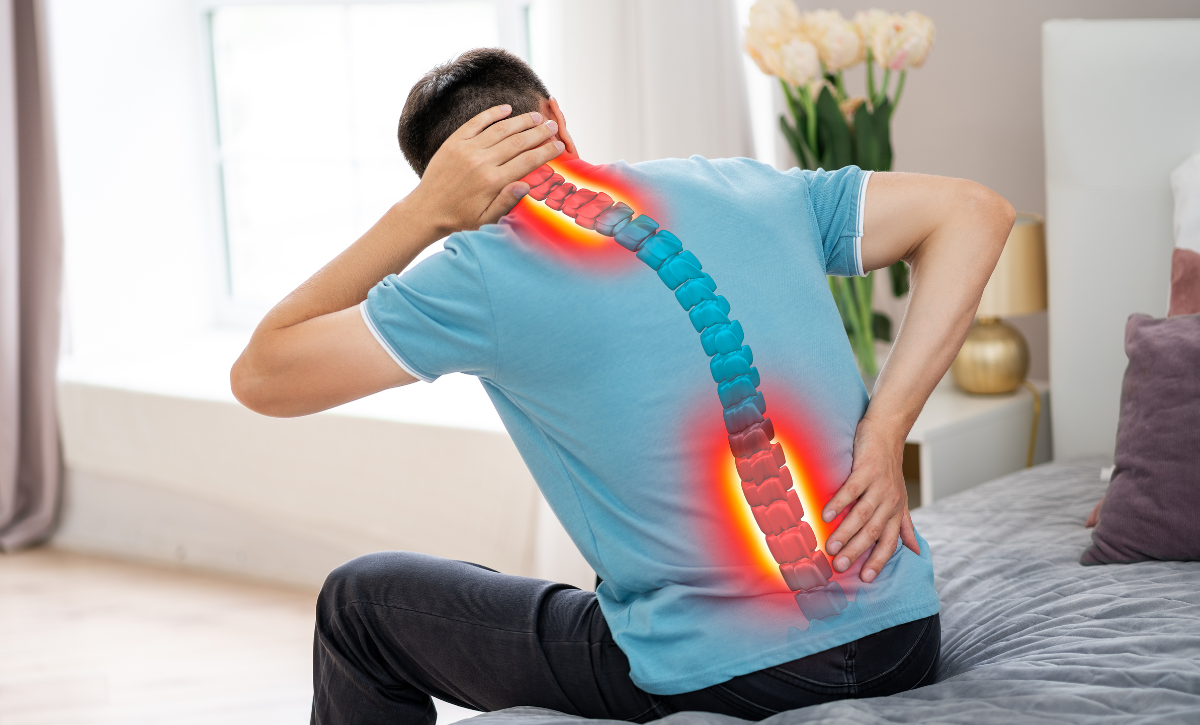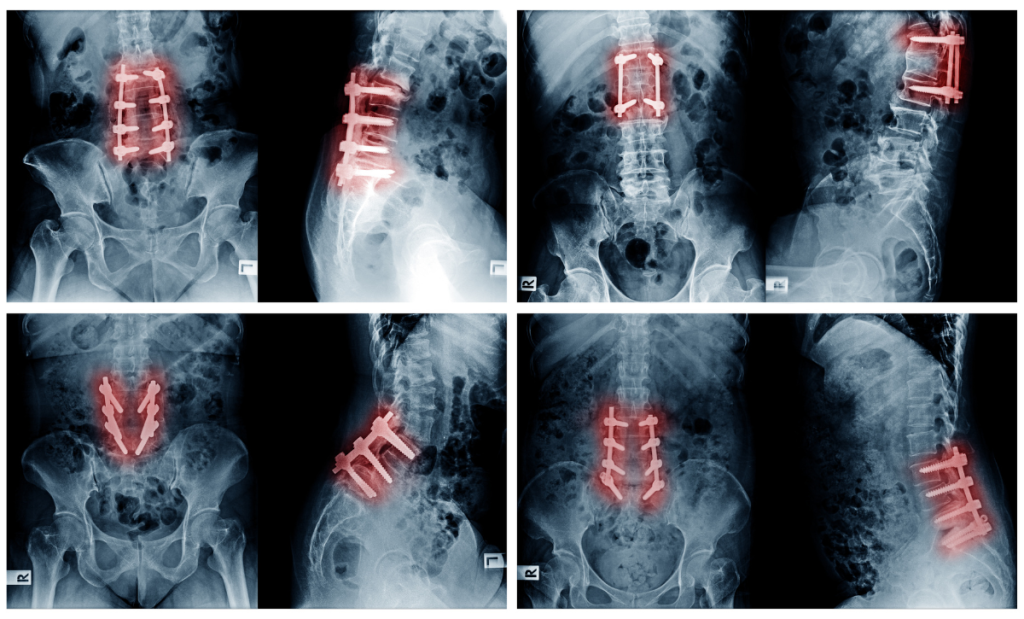
Cervical & Lumbar Disc

A pinched nerve is clinically known as a “radiculopathy.” In the low back or lumbar spine, radiculopathy usually is characterized by low back pain with associated buttock, thigh or leg pain. In the neck or cervical spine, radiculopathy usually is characterized by neck pain with associated shoulder blade or arm pain.
Radiculopathy is most commonly caused by a ruptured disc, a displaced piece of cartilage material between the bones of the spine pushing on a nerve. Although there are some subtle differences between the terms “herniated discs,” “protruded discs,” “extruded discs,” and “ruptured discs,” they are all essentially similar in nature if they compress a nerve and induce radiculopathy. Alternatively, bone spurs and overgrowth of ligament, a condition known as “spondylosis,” can cause nerve compression.
Symptoms:
Occasionally, a ruptured disc can cause weakness of the arm or leg as well as numbness. In severe cases, compression of the spinal cord can induce clumsiness in walking or with use of the hands, a condition known as “myelopathy.”
Treatment:
Herniated discs and the associated cervical or lumbar radiculopathies are the most common disorders that neurosurgeons treat. Most radiculopathies are self-limited and require only observation and nonsurgical treatment. In the presence of relentless pain, weakness, or clumsiness, however, surgery may be necessary. In the United States alone, approximately 275,000 discectomies were performed last year.
When surgery is indicated, a microscopic discectomy is the most commonly utilized procedure. This procedure involves trimming or removing a disc so that it no longer compresses a nerve or the spinal cord. Performing the procedure under a microscope allows for a smaller incision as well as a more precise operation.
Microdiskectomy usually involves a one-inch incision performed on the back of the neck, the low back or the front of the neck depending on the location of the ruptured disk.
Results:
This procedure has a very effective efficacy, in the range of 80% to 90%, for relief of nerve pain symptoms.
